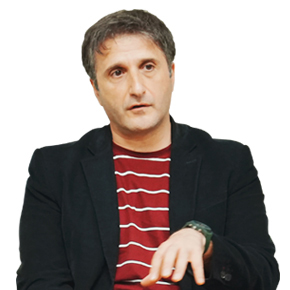Nikol Pashinyan and Ilham Aliyev’s meeting in Davos has caused proper hysteria. I have followed the NK peace talks for around 25 years, covering dozens of meetings between Armenian and Azerbaijani leaders, doing interviews and having off-the-record meetings with foreign diplomats. As many armchair experts have commented on the issue, so I’m going to allow myself to express an opinion or two as well.
First, I think Nikol Pashinyan made a tactical mistake when he failed to even hint that he might meet Ilham Aliyev in Davos. In a Facebook live session on January 23, the Prime Minister said they have an agreement not to avoid contact when they find themselves in the same place. It was known that both Pashinyan and Aliyev would attend the Davos forum, so a small note that admits the possibility of a meeting would help. I think it would at least reduce by half the army of conspiracy seekers.
Nevertheless, that is not the point. What matters is that a large part of the Armenian society starting looking at Pashinyan-Aliyev meetings as a sign of some horrors about to come. This is a new phenomenon. I am not trying to point fingers, but quite obviously, this perception is greatly contributed to by some representatives of former authorities. Almost daily they come forward with apocalyptic predictions and pay no regard to facts. The armchair experts don’t have a problem with that: they make comments for the sake of commenting, so why would they need facts?
Let’s imagine what would happen if Pashinyan and Aliyev met just once after the April 2018 revolution in Armenia. We would get comments that Azerbaijan doesn’t take the new Armenian leaders seriously, doesn’t want to negotiate with them, etc, etc.
This is what we come to: meeting Aliyev is bad, but not meeting Aliyev would also be bad. This is actually where the issue lies. Our concept of “good” and “bad”, particularly of good and bad future is so unclear and variable even in daily life that can we really make categorical remarks about vital national matters?
Serzh Sargsyan and Ilham Aliyev failed to build a relationship and mistrusted one another. Although it might seem strange, Sargsyan’s predecessor Robert Kocharyan and late Azerbaijani President Heydar Aliyev had some sort of mutual understanding. It is still early to say whether Nikol Pashinyan and Ilham Aliyev can establish a relationship, but criticizing Pashinyan’s efforts is strange, to say the least.
Now we approach the most important matters. What do we want? What do think about when we say, for decades, “the NK conflict settlement”? What do we expect from our leaders? Do we want them to solve the problem or buy time?
All those claiming that the “land for peace” solution is unacceptable have no real alternative to offer. “Not an inch of land” can be an option only if we reject the term “settlement” and officially adopt the status of “a fortress under siege”. It is an option as well, but its supporters need to find courage to say that we are rejecting settlement and preparing for an eternal war.
Nikol Pashinyan is the leader of Armenia today. Yesterday, it was Serzh Sargsyan, and tomorrow, it could be someone else. But we don’t change, do we? As a society, we don’t undergo a drastic change. Shouldn’t we clarify for ourselves what we want so that tomorrow we can say to our new leaders: this is the red line you should never cross?
Apart from several marginal politicians and a few dozens or hundreds of their supporters, you won’t find people in Armenia who are willing to discuss conceding territories in exchange of anything. However, just because we don’t like to talk about a prospect, the prospect doesn’t go away.
All sides speculate and will continue to do so, but facts beat speculations every time. One of the facts is that in the course of 25 (!) years after the ceasefire no Armenian leader tried to repopulate the territories outside of Artsakh borders. There are some dedicated individuals who moved there, but people regularly recalling Serzh Sargsyan’s “Aghdam is not our homeland!” remark never did the same.
Like many others, I would love to see the transcript of the Pashinyan-Aliyev meeting in Davos. Obviously, Nikol Pashinyan isn’t fully truthful when he says they are not actually negotiating, but are merely “discussing the possibilities and obstacles” or “exchanging opinions about the perception of the peace talks”. The attempts to understand each other’s perceptions and look at the situation from the perspective of the other party are sometimes more important than formal negotiations.
History knows no conflict when all sides were happy with the compromised settlement. No leader who signed a treaty with concessions was ever declared a hero. Moreover, many people paid for peace or aiming for peace with their lives. Why do we think things will be easy for us? They will not. It’s going to be tough. If we don’t even want to hear about the difficulties, let alone prepare for them, we need to be honest and simply reject negotiations. Whether you like Nikol Pashinyan, whether you voted for him, he is the legitimate leader of our country, who was given the public mandate. If we discover real facts that he is preparing for treason, we will protest. No one should kid themselves that such intentions could be concealed in the modern age. While there are no real facts of unacceptable concessions, I suggest avoiding hysterical reactions. By engaging in those, you don’t actually hinder Pashinyan’s work, but you do help Aliyev, even if unconsciously.
Ara Tadevosyan is the Director of Mediamax.

















